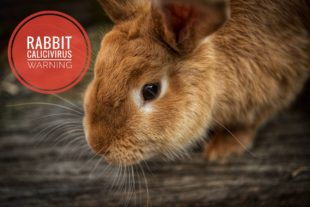Latest News
WARNING: New Rabbit Calicivirus Strain
May 17, 2018
Yesterday the Ministry for Primary Industries (MPI) announced that a new strain of Rabbit Calicivirus (RHDV2) has been detected in a wild rabbit in Marlborough. It is not certain that this viral strain is confined to Marlborough..
Please note this isn’t the strain RHDV1-K5 that was purposefully released nationwide in March this year.
This strain of Calicivirus is known to cause disease in very young rabbits from 4 weeks of age and can cause a longer severe illness than seen with other strains. This strain is highly infectious.
Measures to reduce spread from infected wild rabbits should include:
- Controlling insects (especially flies and fleas) as much as possible both indoors and outdoors. Flies are the main vector through which the virus is spread.
- Remove uneaten food on a daily basis as to not attract flies.
- Keep pet rabbits indoors where possible.
- Rabbit-proof backyards to prevent access by wild rabbits.
- Regularly decontaminate equipment and materials (eg. cages, hutches, bowls) with either 10% bleach or 10% sodium hydroxide. Leave for 10 minutes, then rinse off.
- Limit contact with and handling of unfamiliar pet rabbits. Take special precautions if attending any events where unfamiliar rabbits are present, such as petting zoos, rabbit shows and rescue centres.
- Use good biosecurity measures (eg. wash hands, shoes and clothing) after handling other people’s rabbits.
- Isolate new rabbits for 7 days before introducing to other rabbits.
- Rinse all leafy greens well before feeding them to rabbits. While feeding rabbits leafy greens remains a risk for introducing RHDV2, the benefits of feeding these is considered to outweigh the risks.
If you have any suspicious deaths of pet rabbits please let us know so we can help MPI determine how far this disease has spread.
There is a process underway to import a vaccine that specifically protects against this strain but only 1000 doses are likely to be available and they will be distributed by MPI only.
The vaccine we have that protects against RHDV1 may provide some cross protection to the RHDV2. A protocol has been recommended that begins vaccinations at 4 weeks of age and continues with ongoing 6-monthly boosters. If your rabbit is at high risk from calicivirus infection you can consider this protocol.
Please contact us on 07 888 8197 if you wish to discuss this further.



